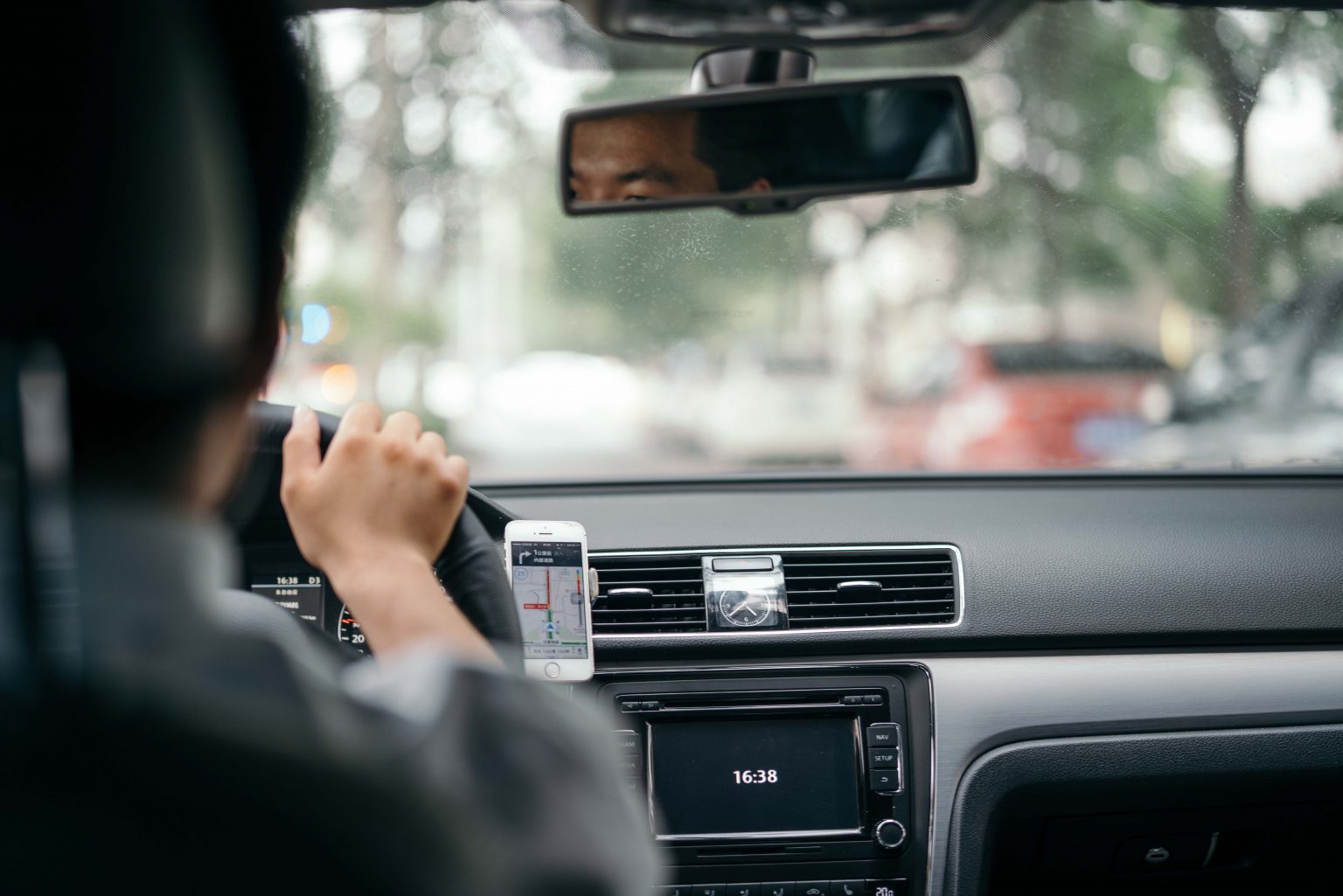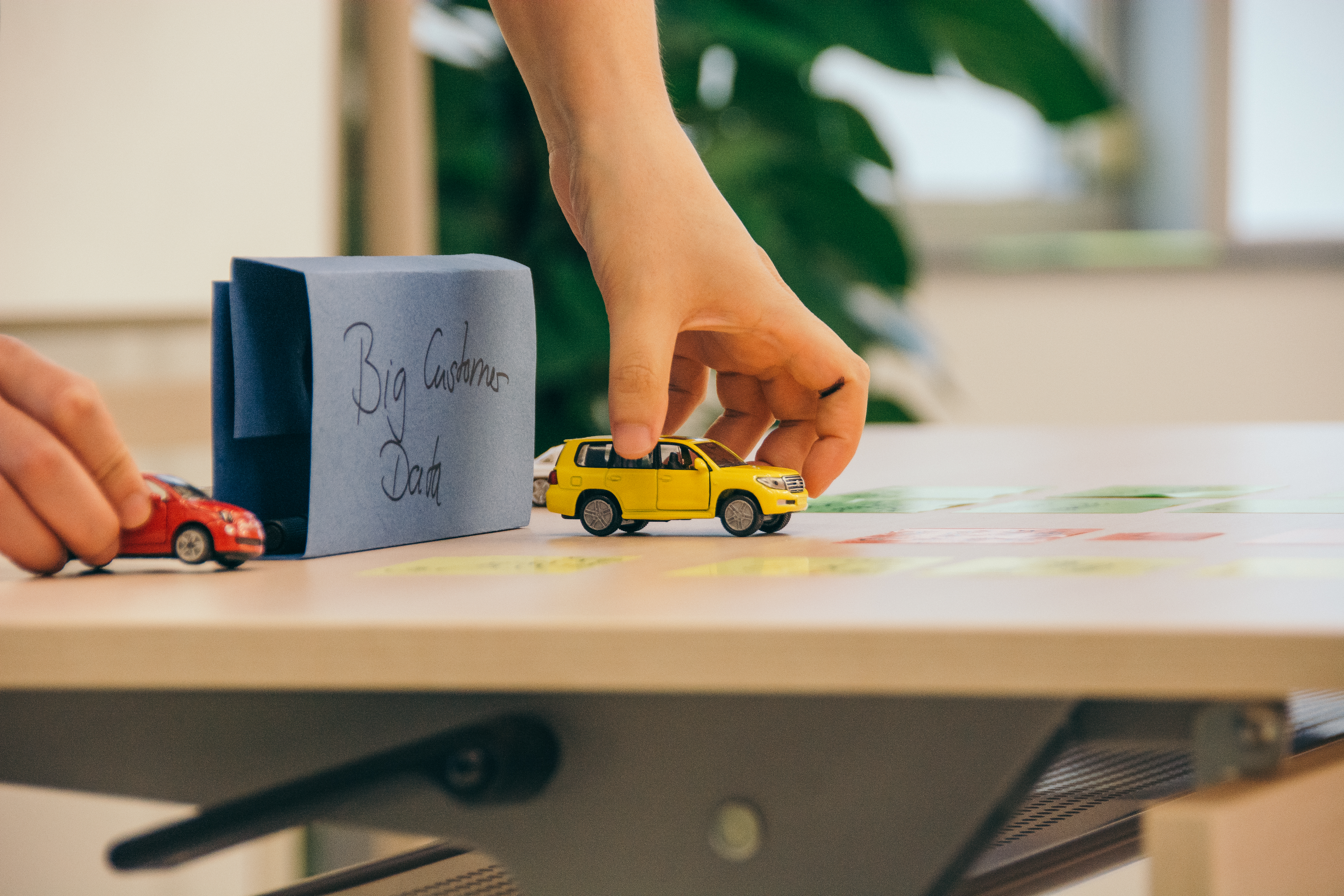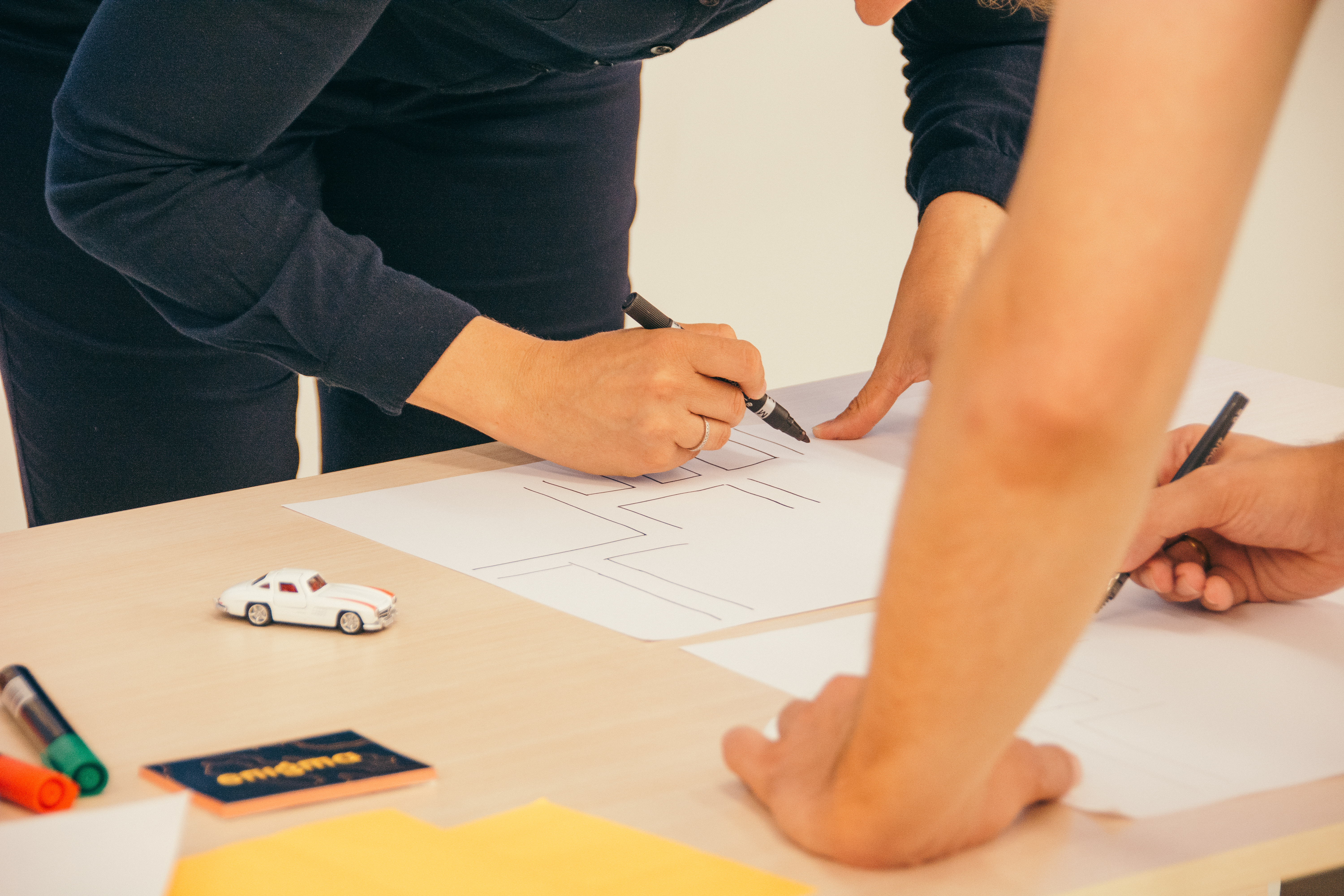
The automotive industry’s future unveiled for a big player
Ambition
With the development of new mobility technologies, the amount of user-generated data is rapidly increasing which generate new business opportunities. However, opportunities emerge only from the ability to link technology to the real behavior of users, ie. their needs. Being able to recognize those opportunities and tap into them requires a strong forward-thinking mindset as well as an expertise in service design. With those two elements at the core of Enigma’s spirit, it was almost natural that a multinational automotive corporation turned to the agency to explore the future of mobility and generate ideas about new services.

Action
In a first step, a desk research about the future of mobility was conducted to develop several scenarios of the future of mobility. Those scenarios were used later on, as a basis for idea generation. By reviewing scientific literature, agency reports, expert interviews, government publications and other types of data sources, Enigma was able to foresee different models or scenario about the future of mobility in the next 10 to 20 years.
An exploratory field research was also conducted to generate knowledge about mobility as of today and how it might evolve in the short term. In this research, observation and interviews were conducted and generated more than 100 anecdotes and insights. Those insights from real-world situations allowed to discover unexpected user behaviors.
In a co-creation process with the automotive manufacturer, more than 50 service ideas were generated in a 2 days workshop at their Research and Development facility in Beijing, China. After an inspiration phase based on the previous researches, ideas were generated in a brainstorming session involving several members of the research and development team. Ideas were then prototyped in groups and presented to the rest of the team. Based on feedback, new prototypes were designed and the process was reiterated.
Based on the best service ideas, 12 low fidelity prototypes and 5 service scenarios were produced. Those assets were used for testing the new services with real-life users and get instant feedback.

Impact
By using a service design toolbox in this challenging and transforming industry, Enigma could show the importance of new technology and how it can impact user’s everyday life positively. Some inspiration for future products and services was generated and showing how they are related to customer needs will foster innovation.
By bringing in new methodologies in innovation approach, Enigma could observe a positive effect on the company innovation culture. Based on a self-evaluation, internal staff judged their own prototyping capability to be increased by 24% after those workshops.



